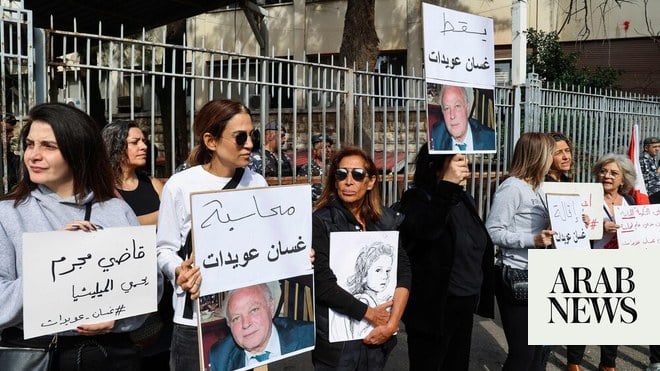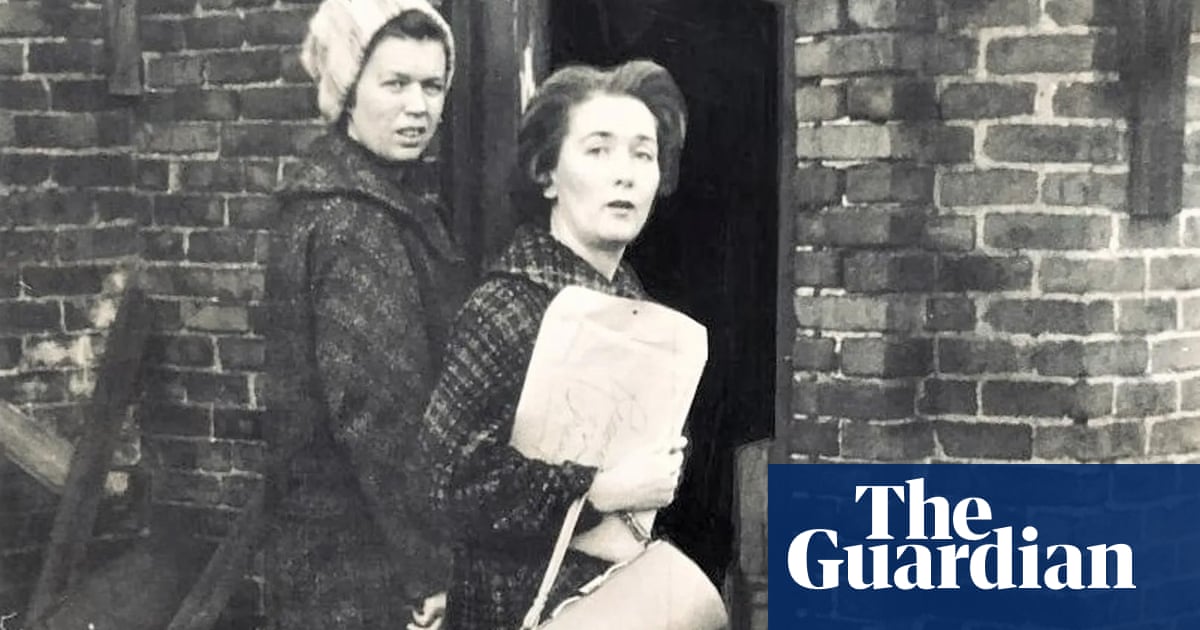
Civil society members stage a sit-in outside the Justice Palace to show ‘solidarity with the judiciary’
BEIRUT: Tarek Bitar, the judge leading the investigation into the August 2020 port explosion, resumed investigations on Tuesday after being notified by the Lebanese Civil Court of Cassation of its second decision to reject the request submitted by the defendant in the case of MP Ali Hassan Khalil.
Normal service resumed at the Justice Palace in Beirut after a long vacation. The Lebanese army guarding roads leading to the palace and Ain Remaneh, which was the arena of bloody events on Thursday, over protests to dismiss Bitar from the case. The repercussions of these events have affected the political scene, its parties and the people.
Civil society activists under the auspices of the “Lebanese Opposition Front” staged a sit-in outside the Justice Palace to show “solidarity with the Judiciary carrying out its national duties and support for Judge Bitar to face the threats.”
Speaking on behalf of the protestors, activist Dr. Ziad Abdel Samad said: “A free and sovereign state cannot exist without a legitimate authority, judiciary and justice.”
Abdel Samad urged “the defendants to appear before Judge Bitar, because the innocent normally show up and defend themselves instead of resorting to threats.”
“We have reached this low point today because of a ruling elite allied with the Hezbollah statelet, protected by illegal arms.
“They want to dismiss Judge Bitar in all arbitrary ways and threats because he has come so close to the truth after they managed to dismiss the former judge, hiding behind their immunities because they know they are involved in the crime.”
Abdel Samad claimed that “those making threats are involved in the crime.”
Regarding the Tayouneh events that took place last week, he said: “They took to the streets to demonstrate peacefully, as they claimed, but they almost got us into a new civil war as a result of the hatred and conspiracies against Lebanon.”
Lawyer May Al-Khansa, known for her affiliation with Hezbollah, submitted a report at the Lebanese Civil Court of Cassation against the leader of the Lebanese Forces party, Samir Geagea, Judge Bitar and “all those who appear in the investigation to be involved, accomplices or partners in crimes of terrorism and terrorism funding, undermining the state’s authority, inciting a strife, and other crimes against the law and the Lebanese Constitution.”
Hezbollah Leader Hassan Nasrallah on Monday night waged an unprecedented campaign of accusations and incitement against the Lebanese Forces party and its leader.
Nasrallah accused them of being “the biggest threat for the presence of Christians in Lebanon” and said they were “forming alliances with Daesh.”
In a clear threat to Geagea and his party, Nasrallah bragged in his speech of having “100,000 trained fighters,” calling on Christians to “stand against this murderer.”
Nasrallah accused Bitar of “carrying out a foreign agenda targeting Hezbollah in the Beirut port crime” and of “being supported by embassies and authorities, turning him into a dictator.”
During the parliamentary session on Tuesday, no contact was made between Hezbollah and the Lebanese Forces. However, a handshake was spotted between the Lebanese Forces’ MP Pierre Abu Assi and the Amal Movement’s MP Hani Kobeissi.
Minister of Culture Mohammed Mortada, who represents Hezbollah, said “Hezbollah’s ministers will attend the ministerial session if Prime Minister Najib Mikati calls for one, but the justice minister and the judiciary must find a solution to the issue of lack of trust in Bitar.”
Several calls were made on Monday night between different political groups to prevent escalation and calm the situation.
Efforts are being made to reach a settlement that allows Bitar to keep his position and for defendants in the Beirut port case — who are former ministers and MPs — to be referred to the Supreme Judicial Council for prosecution.
Elsewhere, parliament dropped the proposal of a women’s quota ensuring female participation through a minimum of 26 seats.
It passed a move to allow expats to vote for the 128 MPs and dropped the decision to allocate six additional seats representing them.
The parliament’s decision angered Gebran Bassil, who heads the Strong Lebanon parliamentary bloc. Following the parliamentary session, Bassil referred to “a political game in the matter of expats’ right to vote, which we will not allow to happen.”












